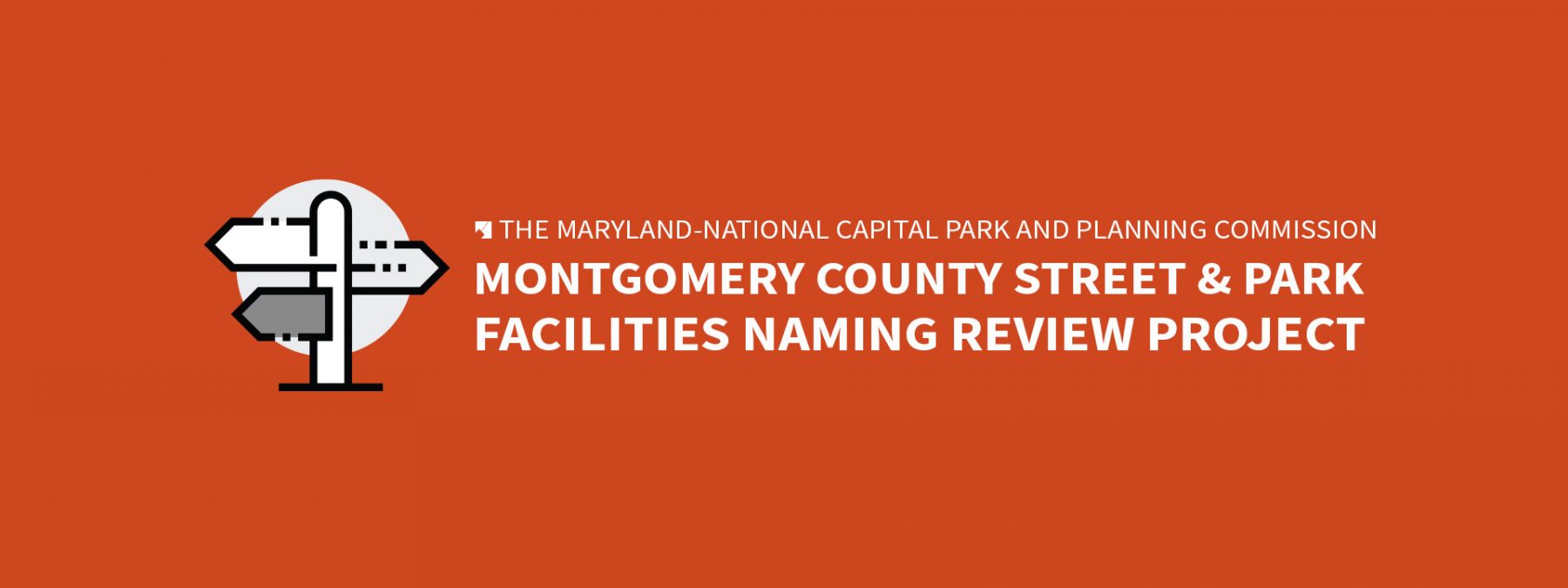
Montgomery Parks and Montgomery Planning are reviewing streets and parks named after Confederate soldiers at the request of County Council
The Maryland-National Capital Park and Planning Commission (M-NCPPC) is currently reviewing all Montgomery county-owned and maintained streets and park facilities to identify those named after Confederates or those who otherwise do not reflect Montgomery County’s values.
This task, known as the Street and Parks Facilities Renaming Review Project, is a joint effort of M-NCPPC’s Montgomery County Planning Department (Montgomery Planning) and Montgomery County Parks Department. The project began in June 2020 after the Montgomery County Council sent a letter to the Planning Board and the County Executive requesting “a comprehensive review of all County owned and maintained street names and public facilities to determine all those named for Confederate soldiers or those who otherwise do not reflect Montgomery County values.”
M-NCPPC is the sole entity authorized under Maryland law with naming or renaming streets in Montgomery County, except within certain independent municipalities. The Commission’s Planning Board has sole approval authority over street renaming.
Three county streets and one park identified as commemorating Confederate generals
To date, M-NCPPC has identified three county streets and one park that had full name matches with Confederate soldiers. This included the Potomac streets now formerly known as Jubal Early Court, J.E.B. Stuart Road, and J.E.B Stuart Court. Montgomery Parks renamed J.E.B Stuart Trail at Woodstock Equestrian Park the Northern Edge Trail in early 2021.
In June 2021, Montgomery Planning announced the streets previously known as J.E.B. Stuart Road and J.E.B. Stuart Court will now be called Geneva Mason Road and Geneva Mason Court, respectively. The street previously known as Jubal Early Court is now William Dove Court. The new street signs were installed in July 2021.
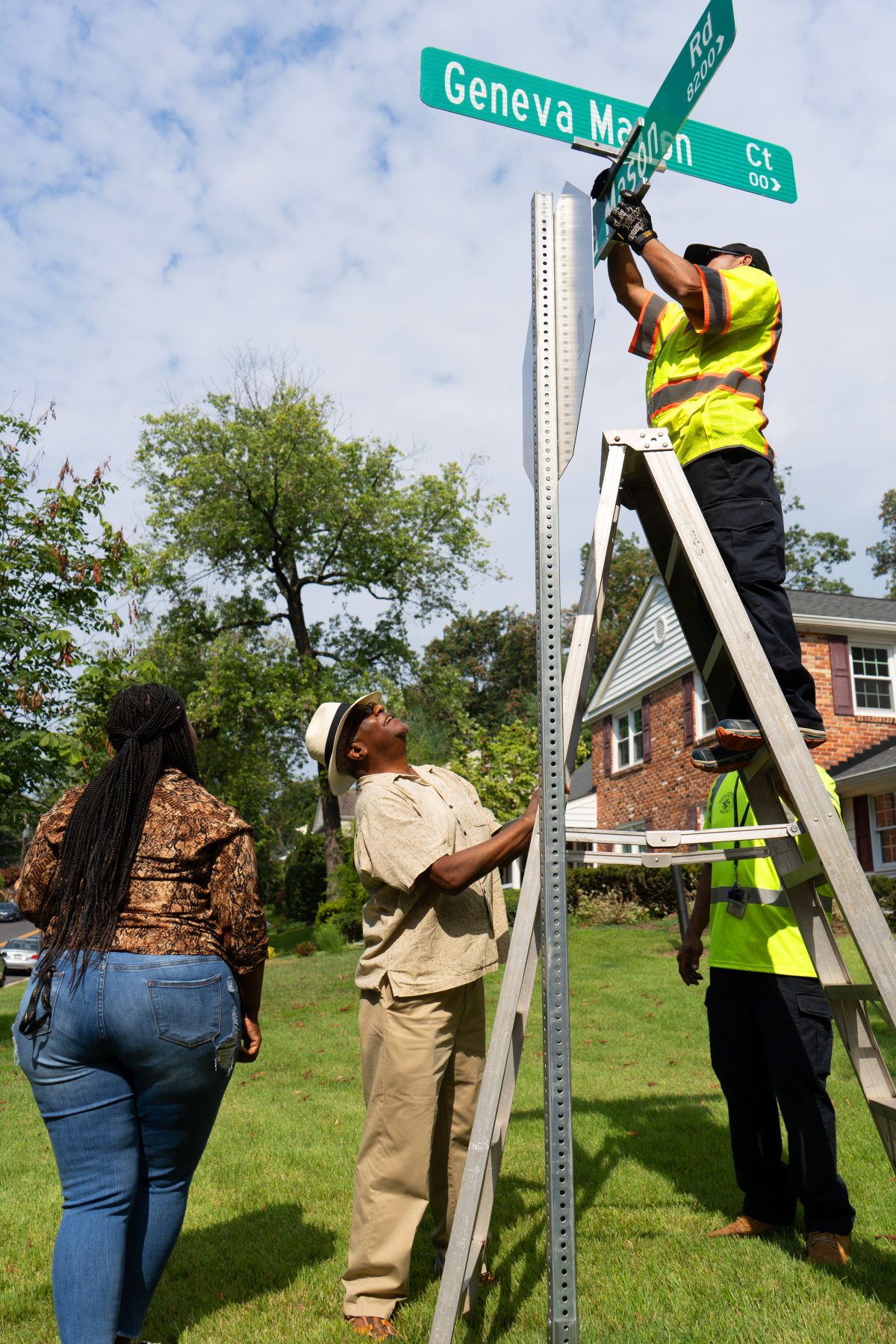
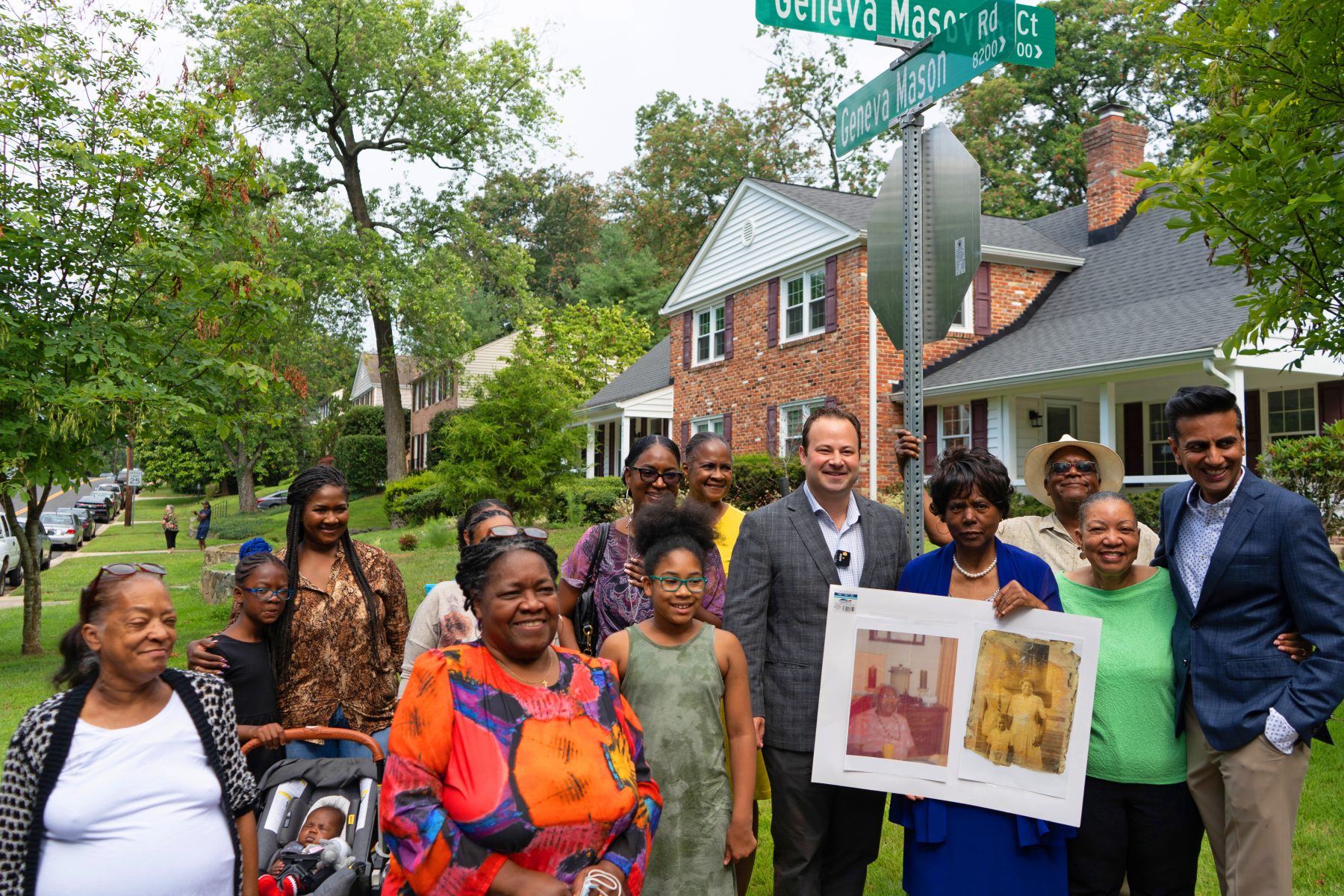
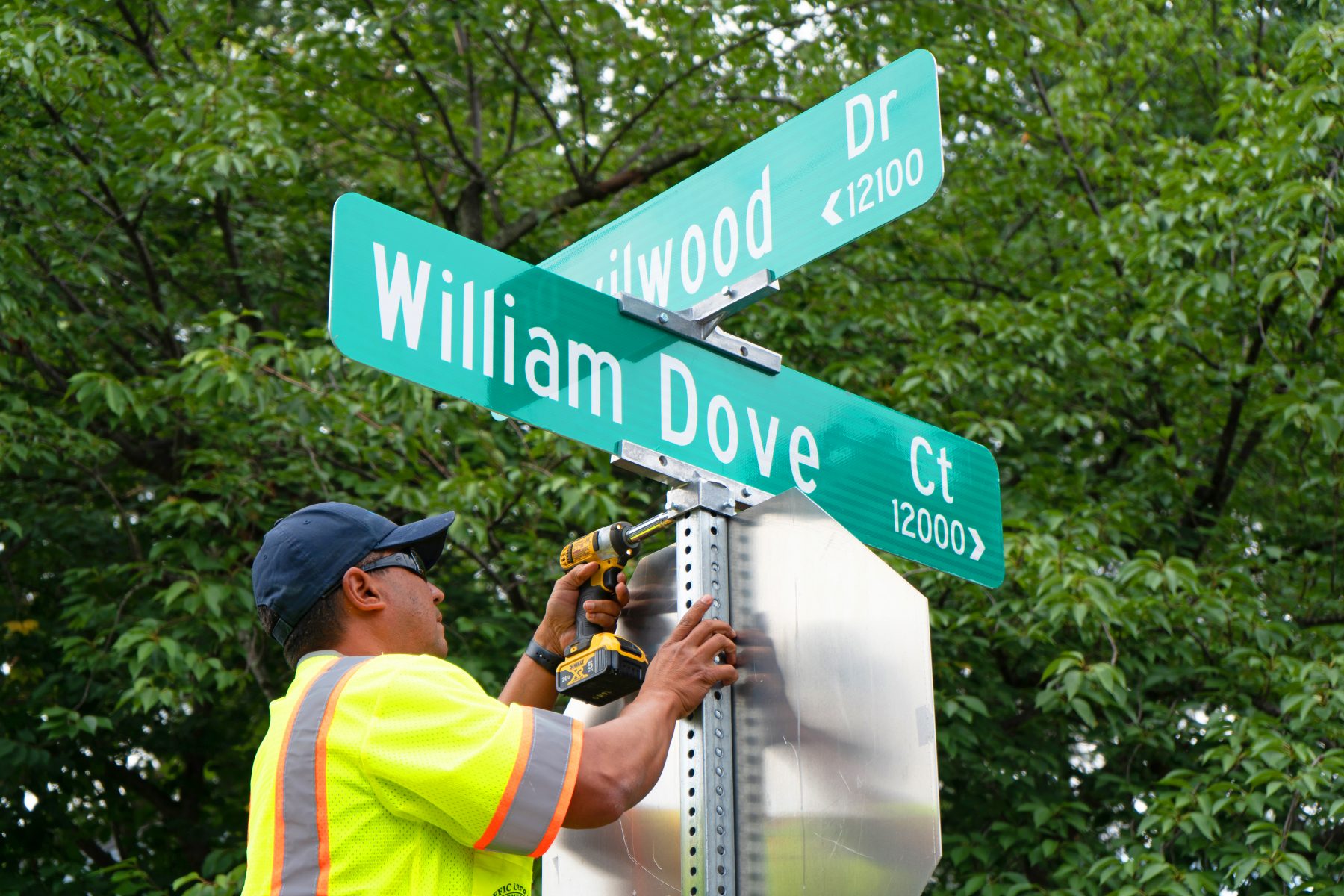
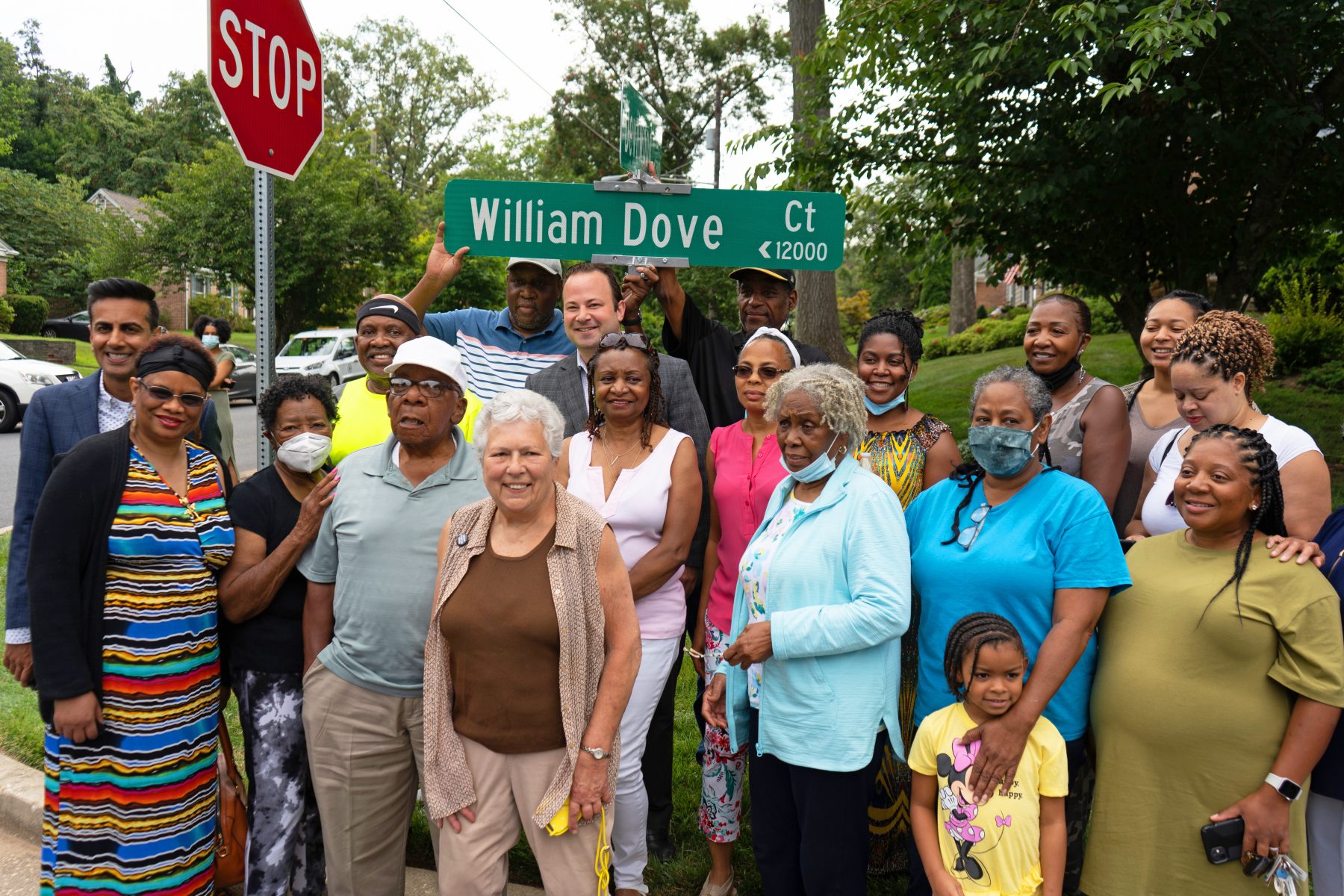
About the new street names
Geneva Mason (1899-1980) was a prominent community leader in the Scotland community, centered near Seven Locks Road in Potomac, in Montgomery County; she was instrumental in the rebuilding of the Scotland community and its fight against urban renewal efforts in the 1960s. In addition to Ms. Mason, the Scotland community suggested renaming a street in honor of one of their elders: William Dove. Dove, an African American man born in slavery, was one of the founding members of the Scotland community. He purchased some of the first parcels in Scotland and is an ancestor of many Dove and related family members who live in Scotland today.
View the Connecting Fairfax City’s Past and Present to Build a More Equitable and Inclusive Future talk with the City of Fairfax and Deputy Director Tanya Stern and Historic Preservation Office Supervisor Rebeccah Ballo.
View the County Cable Montgomery video segment titled “Street Names Changed” produced by Susan Kenedy featuring Deputy Director Tanya Stern and County Councilmember Andrew Friedson on the Montgomery County Street Renaming Project.
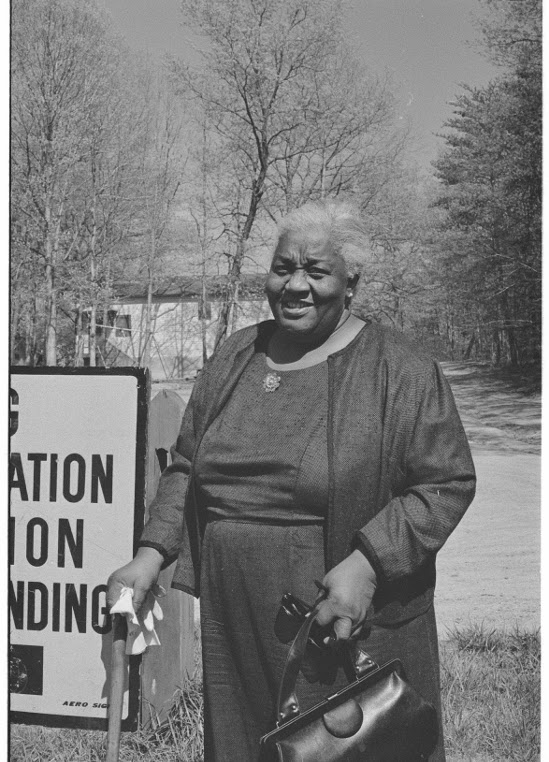
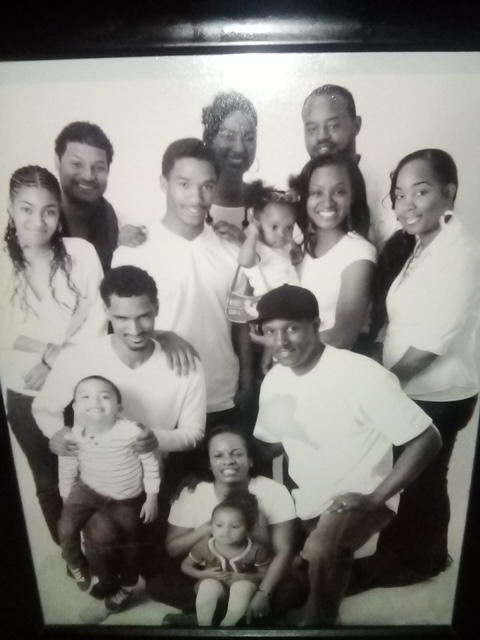
The process of renaming the streets
The Montgomery County Planning Board, part of M-NCPPC, unanimously approved a resolution to begin a process to rename the three county streets on January 14, 2021. The Planning Board’s resolution approval follows the October 1, 2020 initial briefing to the Planning Board on the street and park renaming project; the December 7, 2020 briefing to the Montgomery County Council’s Planning, Housing and Economic Development Committee; and the January 12, 2021 briefing to the full County Council.
Montgomery Planning staff hosted a virtual community meeting with property owners and residents on the three streets on February 22, 2021 to brief them on the renaming project and solicit feedback on potential name options. On June 17, 2021, Montgomery Planning sent the owners and residents of the close to 65 impacted property addresses a letter notifying them of their new street names. The letter also included information on next steps for Montgomery Planning to implement the street name changes as well as steps for property owners to take.
Research Behind the Street and Parks Facilities Renaming Review Project
M-NCPPC staff’s Phase 1 findings focus on identifying a subset of the streets and park assets that have full name matches with nationally known confederates. Staff are focused on finding nationally known Confederates, local Confederates, Confederate sympathizers, and slaveholders between the 1790s through 1860s. Post-Civil War history and 20th century figures have not yet been considered.
M-NCPPC’s research to date has found 325 streets that have a preliminary match with the last names of Confederates and two parks that have a confirmed match with Confederate last names. M-NCPPC developed a database to conduct this research, which contains the names of a total of 709 known Confederates, including 269 that were residents of Montgomery County and 440 senior officers of the Confederate Army. It also contains the names of 5,826 local slaveholders and the names of over 3,300 enslaved individuals who were held in bondage in the County.
To find the match of street names and parks-owned facilities, M-NCPPC staff are cross referencing these names with a Geographic Information System (GIS)-based map data. Staff are then conducting a detailed cross-comparison to determine if a street or park facility is named for the Confederate/sympathizer or slaveholder on the list.
Additional research is still required to confirm last name associations for those streets and park assets with preliminary matches to M-NCPPC’s database of names. There are Confederate or slaveholder last names in the database that may not, after research, be found to correlate with a street or park name. Examples include Walter Johnson Road, named for a famous baseball player, but which was also the name of a Confederate.
The database is a work in progress but will be made available to the public for research and future use when historians have completed required additional work and quality control.
Equity Agenda to Build more Equitable Communities
Montgomery Planning’s Equity Agenda for Planning is an ongoing commitment to systemically dismantle the institutional and structural racism that exists in and has long influenced planning and zoning processes and to prevent that influence in the future. We are committed to confronting the legacy of racism and its ongoing effects and to using this equity lens in all our plans, policies, practices, and other work—including to ensure that staff understand and practice social justice in their hiring practices and work to dismantle their own internalized biases.
Frequently Asked Questions
Under Maryland law, since the 1950s, M-NCPPC, through the Montgomery County Planning Department, has been tasked with naming and renaming any street or highway and numbering or renumbering of housing in Montgomery County, except within independent municipalities. Learn more about the Montgomery Planning Street Addressing Policy.
Please email Renaming@montgomeryplanning.org or fill out the form below to let M-NCPPC know about the names of streets, parks or parks facilities that you think should be reviewed at this time based on the County Council’s request.